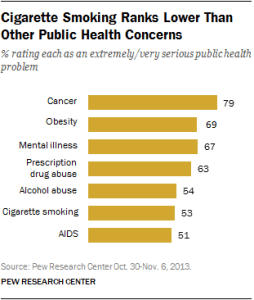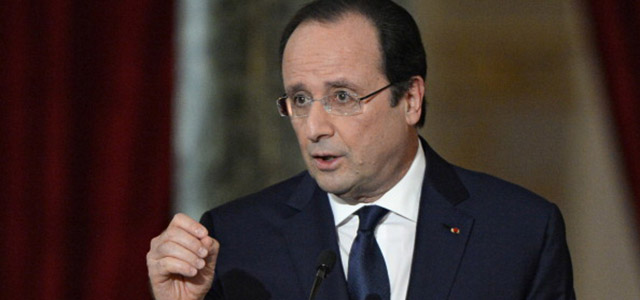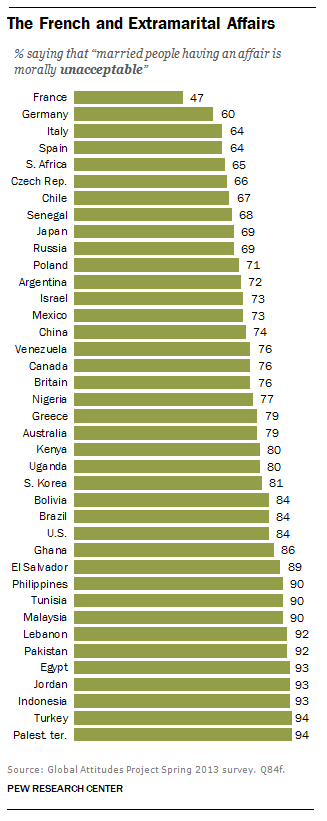

French President Francois Hollande may have hoped his first press conference of 2014 would offer an opportunity to discuss his agenda and boost his sagging political fortunes, but when he faced reporters today he confronted questions about his personal life – specifically his alleged affair with actress Julie Gayet. Dealing with accusations of marital infidelity is something no politician wants to do, but as the leader of France, Hollande is perhaps in a better position than most. Compared with others around the world, the French are blasé about marital indiscretions.

This is not the first time a French president has been in the spotlight for having an affair. Francois Mitterrand, who was married, had a long-running affair with a woman who showed up at his funeral with the daughter that he fathered. In 1899, President Felix Faure died in the Elysee Palace in the arms of his mistress. Napoleon, an emperor not a president, was unfaithful to his wife Josephine, engaging in a long line of mistresses.
Hollande is not married, but he has an “official partner,” Valerie Trierweiler, who lives with him at the Elysee Palace and is referred to as France’s First Lady.
Just 47% of the French say it is morally unacceptable for married people to have an affair, the lowest percentage among 39 nations surveyed in 2013 by the Pew Research Center. In fact, France was the only country where less than 50% of respondents described infidelity as unacceptable. Instead, four-in-ten think it is not a moral issue, while 12% say it is actually morally acceptable. And there is essentially no gender gap on this issue, with 45% of French men and 50% of women saying affairs are unacceptable.
Across the countries polled, a median of 79% consider infidelity unacceptable, including an overwhelming 84% of Americans. This belief is especially widespread in predominantly Muslim nations – nine-in-ten or more hold this view in the Palestinian territories, Turkey, Indonesia, Jordan, Egypt, Pakistan, Lebanon, Malaysia and Tunisia.
But even among France’s Western European neighbors, most think affairs are morally wrong, including six-in-ten or more in Germany, Italy, Spain, and Britain.
When it comes to the specific case of Hollande, a survey by the French Institute of Public Opinion, conducted Jan. 10-11, found that 77% of the French considered it a private affair that concerned only the president, while 23% said it was a matter of public concern.
Note: This data will be published in a forthcoming report that looks at global attitudes towards morality more broadly. The topline for this data can be found here.
